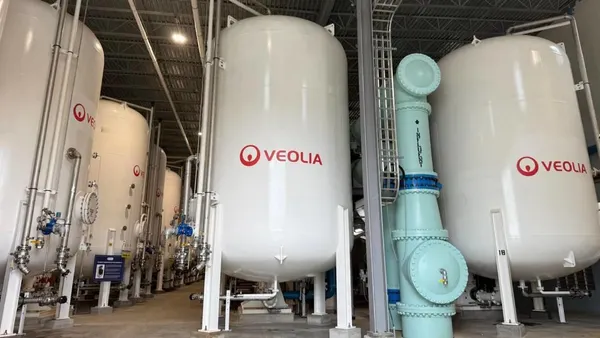Dive Brief:
- Nonprofits, government agencies and local recycling companies are working on multiple programs to clean up electronic and hazardous waste from remote Alaskan communities. This process has been helped by Environmental Protection Agency (EPA) recycling grants, which are set to end in 2020, as reported by KUAC.
- The Green Star Program — run by the nonprofit Alaska Forum — is focused on categories such as appliances and large batteries. The process of draining hazardous substances before putting the items on barges to Anchorage is expensive and time consuming.
- Green Star of Interior Alaska, a separate program, is working with a government-led task force to recover improperly disposed electronic waste. The group is also working to start a recycling outreach program that would cover 60 rural communities without enough sanitary disposal options.
Dive Insight:
Even with attention from the EPA, Alaska's Department of Environmental Conservation and multiple nonprofit groups, rural waste management in the state remains a challenge. In many cases, remote villages have been using unsound methods to bury or burn their waste for decades. For communities that have limited transportation options this isn't surprising, but it has resulted in groundwater pollution and other significant environmental consequences.
Based on data reported by the Environmental Research & Education Foundation, the state diverted 19% of its waste for recycling and 2% for composting in 2013. These numbers are likely driven by efforts in Anchorage — which is dealing with more traditional curbside recycling participation issues — and other population centers. Anchorage also serves as a hub for exporting the waste recovered from these villages to ports such as Seattle, possibly for transport to overseas markets.
In the short term, additional grant funding from the EPA could help continue these efforts but is far from guaranteed under the new administration. The recently re-introduced Zero Waste Development and Expansion Act could be a potential funding source, though its prospects are also uncertain. As the cleanup continues these rural communities will also need to consider better options for avoiding similar issues in the future. Various conversion technologies, such as combustion, could be appropriate options for areas with limited space and a need for reliable energy sources.










